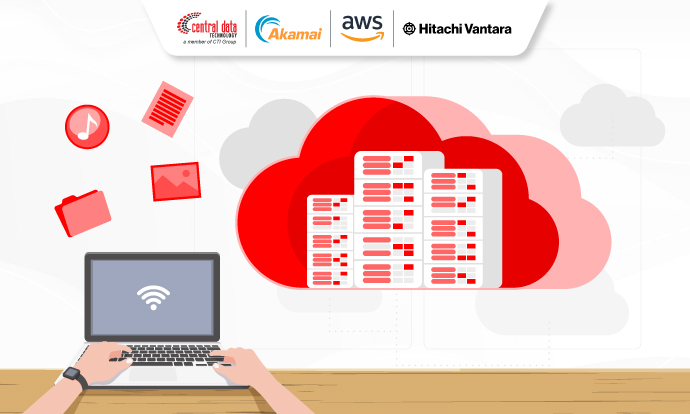
Virtual storage is a technology that abstracts physical storage devices into a logical pool, providing businesses with greater flexibility and efficiency in managing their data. This article delves into the concept of virtual storage, its advantages, and how it can benefit your organization.
What is Virtual Storage?

Virtual storage is a technology that enables the creation of virtual data storage devices, such as hard drives, within a virtual environment. Unlike physical storage, virtual storage can be dynamically created, resized, and deleted as needed,without the need for physical hardware modifications. This abstraction layer offers greater flexibility and efficiency in managing data storage.
5 Key Advantages of Virtual Storage
Virtual storage allows data to be stored virtually within a server environment. The stored data appears to reside on physical devices but is managed by software. Here are five key advantages of virtual storage for modern businesses:
Flexible Storage Array Option
Virtual storage offers high scalability, allowing you to easily increase or decrease storage capacity as needed without purchasing additional physical hardware. Storage options can be consolidated, simplifying management and improving efficiency. You can also choose the storage type that best suits your needs, such as block storage, file storage, and object storage.
Cost Effective
Virtual storage enables more efficient use of storage resources as you only pay for the capacity you use, reducing operational costs. Additionally, this solution can lower the costs of purchasing, maintaining, and cooling physical hardware.
Improved Data Accessibility
Easy configuration with high availability features ensures data accessibility even in the event of a component failure.Caching and tiering technologies provide better performance compared to physical storage with the flexibility of accessing data from anywhere and at any time.
Simplified Management
All storage can be managed through a single interface, simplifying administration and reducing the risk of human error. Storage management tasks such as provisioning and backups can be automated, saving time and effort.
Wider Access
Virtual storage can be integrated with cloud services, allowing you to leverage various cloud services such as backup, disaster recovery, and data analytics. Some storage solutions even support multi-tenancy, enabling multiple tenants or departments to share a common storage pool.
How Does Virtual Storage Works?
Virtual storage allows us to manage various physical storage devices (such as hard drives, SSDs, SANs, or NAS) as if they were a single storage device. Here’s how virtual storage works:
Abstracting Storage
All physical storage devices connected to the system are pooled together and managed as a single storage pool. This pool enables users to create smaller Logical Unit Numbers (LUNs), which can be allocated to various servers or applications as needed by the business.
Centralized Management
Specialized software manages and controls all virtual storage operations. This software is equipped with advanced features such as provisioning for allocating storage as needed, snapshots for creating data copies, cloning for creating exact data copies, and replication for backing up or failing over data to another location.
Application Transparancy
The abstraction at the low-level means that applications running on the system are unaware that they are accessing virtual storage, as it appears to be a regular physical storage device.
Read More: Easy Autoscaling Management with Virtual Storage Platform
Virtual Storage dan Cloud Storage
Virtual storage is often confused with cloud storage, as both involve digital storage. However, they have distinct characteristics, functions, and implementations. Here’s a detailed breakdown of the differences:
| Features | Virtual Storage | Cloud Storage |
| Data location | On-premises | Off-premises |
| Access | Through local network | Online through the internet |
| Scalabilities | Limited to local capacity | More flexible to scale up and scale down |
| Cost | Involves upfront costs for hardware | Often pay-as-you-go |
| Management | Requires more hands-on management | Often managed by the provider |
| Dependency | Depends on the infrastructure | Depends on the internet connection |
Boost Your Business with CDT’s Virtual Storage Solutions
Central Data Technology offers a range of virtual storage solutions to elevate your business operations. Explore these top picks:
Hitachi Vantara VSP One
Experience unmatched flexibility and performance with Hitachi Vantara VSP One. Its hybrid cloud capabilities and advanced data management features make it the perfect choice for demanding workloads.
AWS S3
For businesses developing Gen-AI-powered services and applications, AWS S3 offers a robust and scalable virtual storage solution. Its high durability and availability make it ideal for storing large volumes of unstructured data, including backups, archives, and analytics. Moreover, AWS S3 can be easily used to host static websites, providing a comprehensive solution for various business needs.
Akamai Linode Object Storage
Akamai Linode Object Storage offers a convenient and cost-effective virtual data storage solution. With the ability to scale up to 1PB of data, free data egress out of up to 1TB, and S3 compatible, Linode is ideal for businesses seeking flexibility in data management. Additionally, its seamless integration with various cloud services makes Linode an attractive choice for modern enterprises.
Elevate Your Data Storage with CDT
Choose from our range of virtual storage solutions, including Hitachi Vantara VSP One, AWS S3, and Akamai Linode Object Storage. Each solution offers unique benefits to meet your specific business needs. Contact us today for a consultation by click on thisi link.
Author: Ervina Anggraini – Content Writer CTI Group

